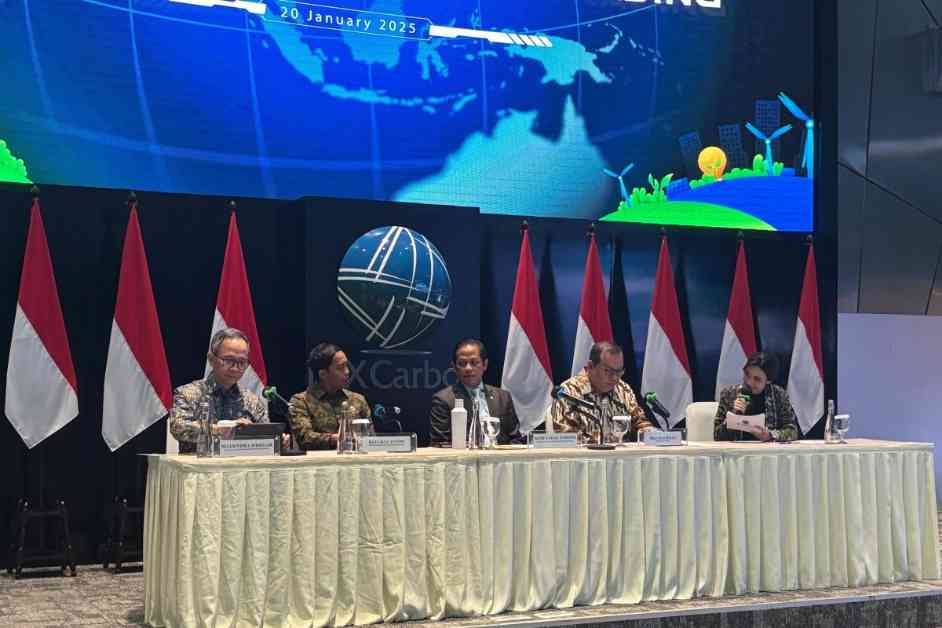Indonesia’s Carbon Trading Mechanism: A Game-Changer in FOLU Sector
In a groundbreaking announcement, Forestry Minister Raja Juli Antoni unveiled Indonesia’s ambitious plan to revolutionize the trading of carbon within the forestry and other land use (FOLU) sector. This development marks a significant milestone in the country’s efforts to enhance carbon pricing and maximize the potential of the FOLU sector.
Key Developments Unveiled
During a press conference following the launch of Indonesia’s international carbon trading, Minister Antoni emphasized the importance of this new mechanism. He revealed that the Ministry of Forestry is currently devising a scheme to streamline the trading of carbon within the FOLU sector, aiming to generate widespread interest in the carbon market.
Moreover, the ministry has collaborated with the Financial Services Authority (OJK) to explore opportunities for carbon trading based on emissions reductions in the FOLU sector. Indonesia’s overarching goal is to achieve a net sink condition in the FOLU sector by 2030, surpassing carbon emissions with absorption.
Impacts and Significance
The launch of Indonesia’s international carbon trading underscores the government’s commitment to fulfilling its pledges made during the 29th UN Climate Change Conference (COP29) in Baku, Azerbaijan. This initiative represents a concrete step towards aligning national efforts with global climate goals and fostering sustainability in the FOLU sector.
Additionally, OJK Board of Commissioners Chair Mahendra Siregar affirmed the agency’s readiness to support ministries and other entities in implementing carbon pricing through mechanisms like carbon trading. By enabling the trading of emissions reductions from the FOLU sector, this initiative offers significant added value beyond mere carbon emission reductions.
Looking Ahead
As Indonesia embarks on this transformative journey towards carbon neutrality in the FOLU sector, stakeholders across various industries eagerly anticipate the positive impacts of this innovative mechanism. The integration of carbon trading in forestry and land use practices not only enhances environmental conservation but also opens up new avenues for sustainable development and economic growth.
In conclusion, Indonesia’s carbon trading mechanism in the FOLU sector heralds a new era of environmental stewardship and climate action. By fostering collaboration between government agencies, financial institutions, and environmental experts, this initiative paves the way for a more sustainable and resilient future for generations to come.






















